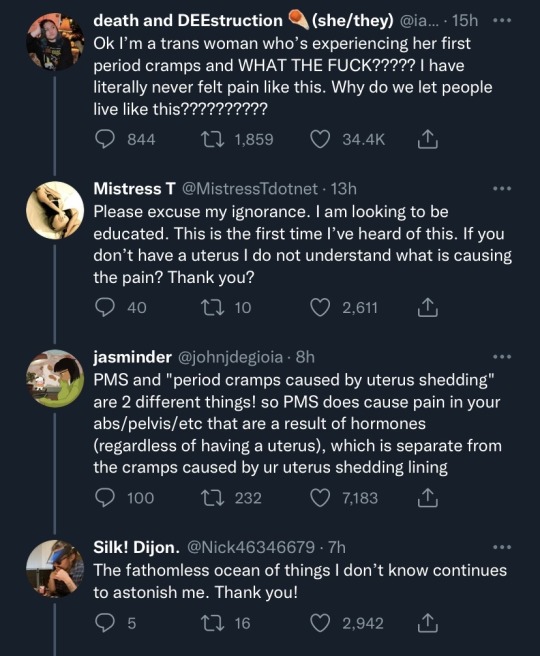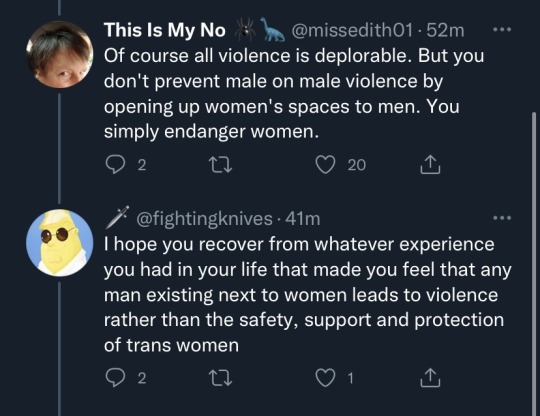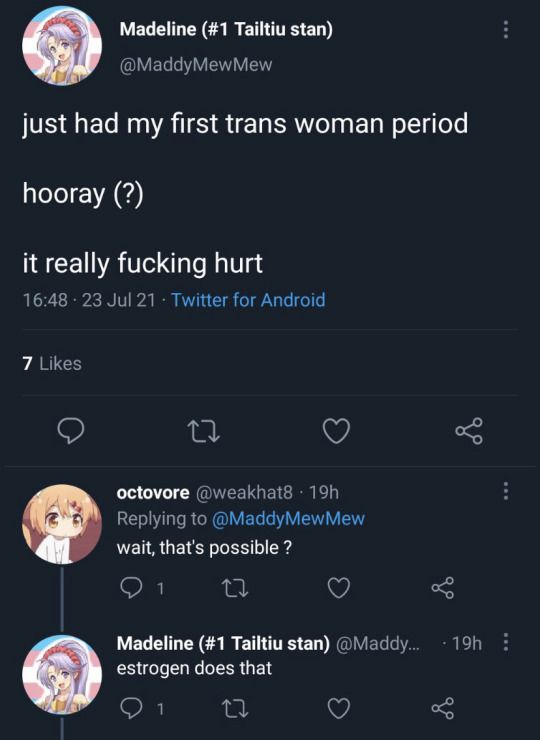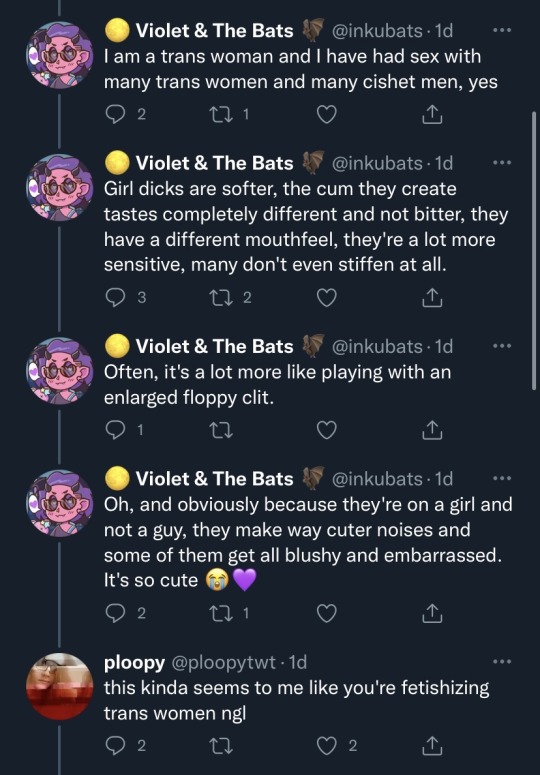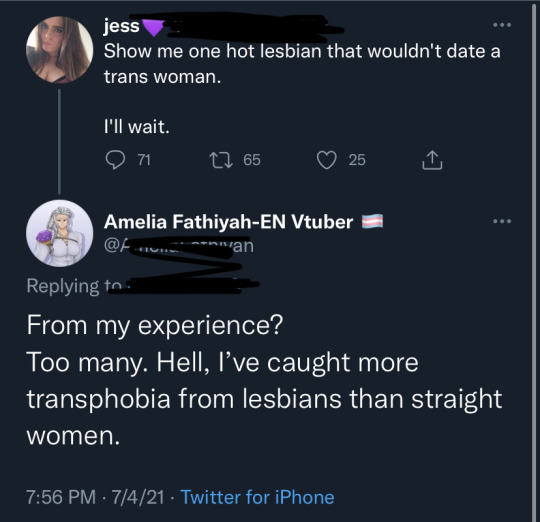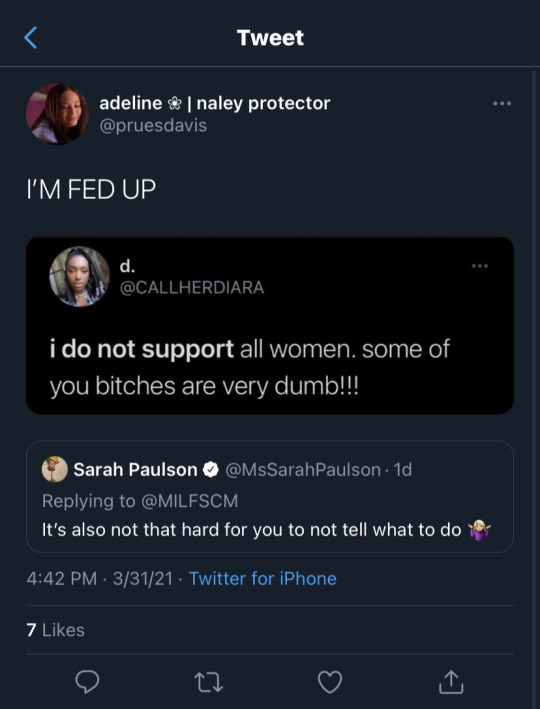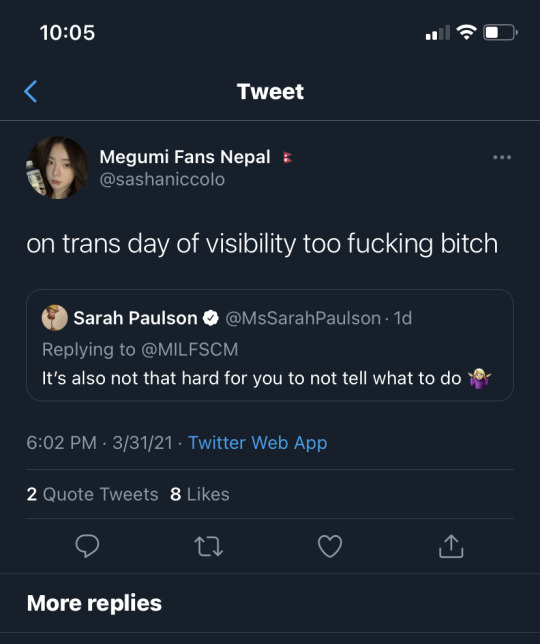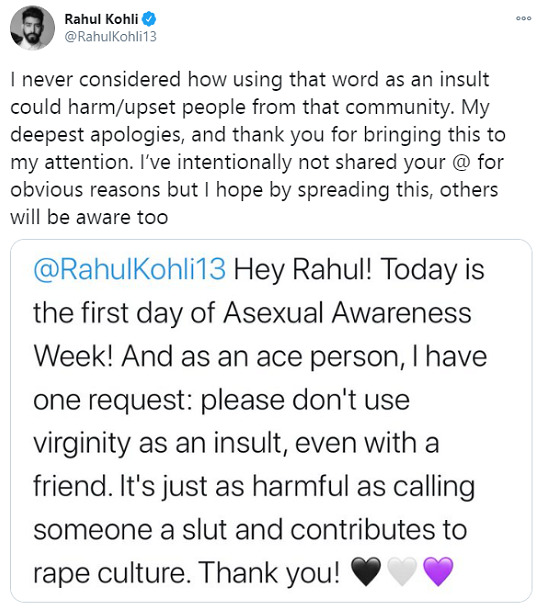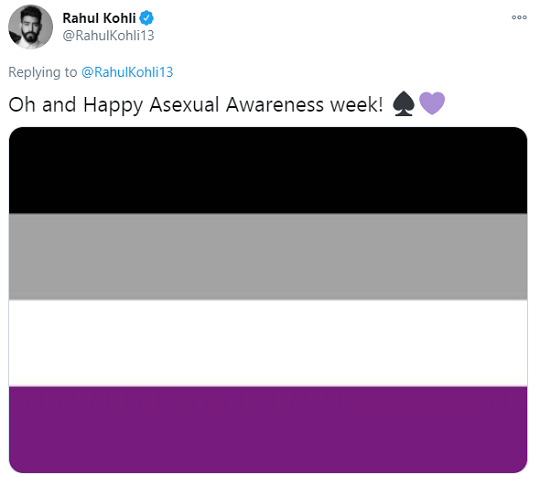Text
Of all the dumbasses on tumblr, this one holds a special place in my heart:

Wherever you are, discoursedonkeykong, I hope you wake up occasionally feeling a massive flush of embarrassment at being an annoying jerk in 2016.
134 notes
·
View notes
Text
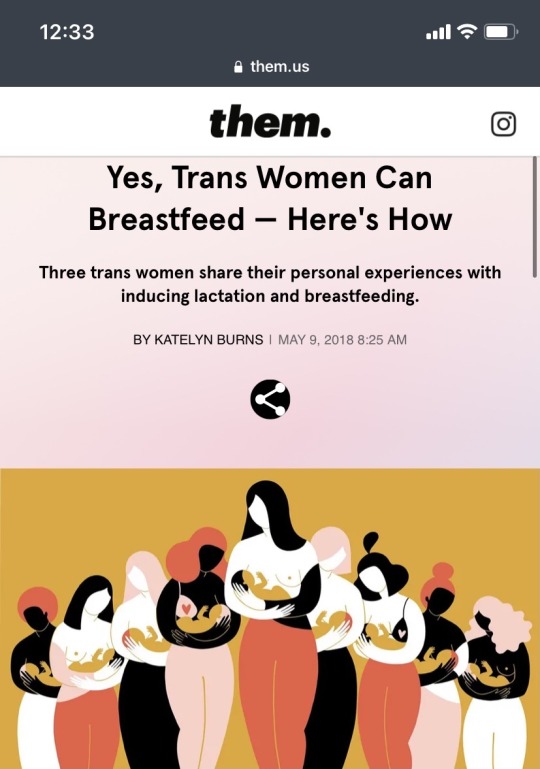
Kaia, 30, Toronto, ON
“My wife and I have a really nice basis for comparison, because we went from two boobs to four boobs when I transitioned. There’s a lot more sleep this time around, and a lot more ability for my wife to be able to go out and know that you’re not going to have a baby freakout. I remember back when we had our first child, five years ago, she had to go somewhere for an hour, and the baby’s sitting there screaming, and we hadn’t pumped milk before that. We were first-time parents, we were 24, didn’t know what we were doing, and I was just freaking out. I texted her and said “I don’t know what to do, I can’t feed the baby, what do I do?” We just wound up having a baby scream for a half hour, and she came back and felt really horrible. Stuff like that doesn’t happen anymore. We’ve had two people to get a baby to sleep, two people to feed it, and I don’t know if this is in any way correlated, but we’ve never had a baby grow this fast before. They gained back their birth weight in a week, and they’re gaining an average of 1.1 ounces a day, and have maintained that consistently.”
Brettany, 56, Texas
“My body will never allow me to conceive and bear a child, and I've always wanted to at least be able to nurse one. That was the main motivation for this. The secondary motivation was that I wanted to bring my breasts to full maturity. At that time I was comfortably into stage four on the Tanner scale [a system used to medically qualify the development of secondary sex characteristics], and from my research I realized most cis women do not even make it to Tanner stage five unless they've gone through pregnancy or a lactation protocol, because it requires that extra bit of development that prepares you for breastfeeding in order to finish the development of your breasts. I did some research about lactation and tried to dig up whatever I could on it, and came across a protocol called Newman Goldfarb. With a fairly long session, I could produce about an ounce. It was kind of funny because my spouse has really struggled with my breasts growing and at that point she was giving me tips on how to stimulate more milk production. I think that I would have done quite a bit more, except at about that time we found out we had to move to move to another city, and then we’ve had to move again since. I've stayed away from the progesterone in hopes that at some point I can re-lactate and get into donation. It was a very satisfying experience, but it was also very taxing. If you get into donating, you have to keep the kind of schedule that a new mother needs to keep. It's really, really intense.”
Dr. Laura Arrowsmith D.O., 68, Tulsa, OK
“When I was in my late 50s, I decided that I was going to try this to see if I could do it. I underwent a drug regimen and used a breast pump fairly regularly. And gosh, within about a month, I guess, I was producing milk!
After I got to the point where I understood that I could lactate, I didn’t pursue it further — I didn’t have any need to maintain lactation. It’s a supply and demand sort of thing, so I stopped the medication and the pumping and of course I dried up. It was just super, super neat. I think it strongly reinforced my sense of womanhood. I had some great inner satisfaction in knowing that I could do what a cisgender woman could. It was very important to me, and I’m proud and happy that I did that. My main career was as a radiologist. I retired from that about a year ago; I’ve seen my own mammograms and there’s absolutely no way that a radiologist could look at my mammogram and say “Oh, that person’s trans.” Breast tissue is breast tissue. Looks identically, works identically.
The lactation thing for me just affirmed my womanhood, I think that was the most important part.”
https://www.them.us/story/trans-women-breastfeed
11 notes
·
View notes
Text

Kaia, 30, Toronto, ON
“My wife and I have a really nice basis for comparison, because we went from two boobs to four boobs when I transitioned. There’s a lot more sleep this time around, and a lot more ability for my wife to be able to go out and know that you’re not going to have a baby freakout. I remember back when we had our first child, five years ago, she had to go somewhere for an hour, and the baby’s sitting there screaming, and we hadn’t pumped milk before that. We were first-time parents, we were 24, didn’t know what we were doing, and I was just freaking out. I texted her and said “I don’t know what to do, I can’t feed the baby, what do I do?” We just wound up having a baby scream for a half hour, and she came back and felt really horrible. Stuff like that doesn’t happen anymore. We’ve had two people to get a baby to sleep, two people to feed it, and I don’t know if this is in any way correlated, but we’ve never had a baby grow this fast before. They gained back their birth weight in a week, and they’re gaining an average of 1.1 ounces a day, and have maintained that consistently.”
Brettany, 56, Texas
“My body will never allow me to conceive and bear a child, and I've always wanted to at least be able to nurse one. That was the main motivation for this. The secondary motivation was that I wanted to bring my breasts to full maturity. At that time I was comfortably into stage four on the Tanner scale [a system used to medically qualify the development of secondary sex characteristics], and from my research I realized most cis women do not even make it to Tanner stage five unless they've gone through pregnancy or a lactation protocol, because it requires that extra bit of development that prepares you for breastfeeding in order to finish the development of your breasts. I did some research about lactation and tried to dig up whatever I could on it, and came across a protocol called Newman Goldfarb. With a fairly long session, I could produce about an ounce. It was kind of funny because my spouse has really struggled with my breasts growing and at that point she was giving me tips on how to stimulate more milk production. I think that I would have done quite a bit more, except at about that time we found out we had to move to move to another city, and then we’ve had to move again since. I've stayed away from the progesterone in hopes that at some point I can re-lactate and get into donation. It was a very satisfying experience, but it was also very taxing. If you get into donating, you have to keep the kind of schedule that a new mother needs to keep. It's really, really intense.”
Dr. Laura Arrowsmith D.O., 68, Tulsa, OK
“When I was in my late 50s, I decided that I was going to try this to see if I could do it. I underwent a drug regimen and used a breast pump fairly regularly. And gosh, within about a month, I guess, I was producing milk!
After I got to the point where I understood that I could lactate, I didn’t pursue it further — I didn’t have any need to maintain lactation. It’s a supply and demand sort of thing, so I stopped the medication and the pumping and of course I dried up. It was just super, super neat. I think it strongly reinforced my sense of womanhood. I had some great inner satisfaction in knowing that I could do what a cisgender woman could. It was very important to me, and I’m proud and happy that I did that. My main career was as a radiologist. I retired from that about a year ago; I’ve seen my own mammograms and there’s absolutely no way that a radiologist could look at my mammogram and say “Oh, that person’s trans.” Breast tissue is breast tissue. Looks identically, works identically.
The lactation thing for me just affirmed my womanhood, I think that was the most important part.”
https://www.them.us/story/trans-women-breastfeed
#trans rights#anti terf#feminism#fuck TERFs#woman#trans woman#trans women#transbian#terf#non binary#enby
11 notes
·
View notes
Text

https://twitter.com/vanessa_mexia/status/1412905176873283585?s=21

https://twitter.com/vanessa_mexia?s=21
2K notes
·
View notes
Photo
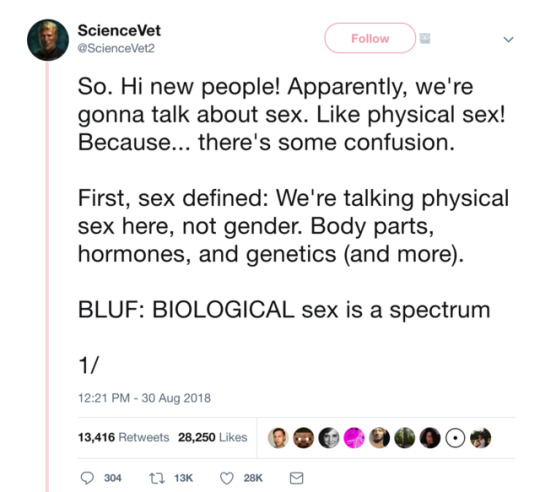
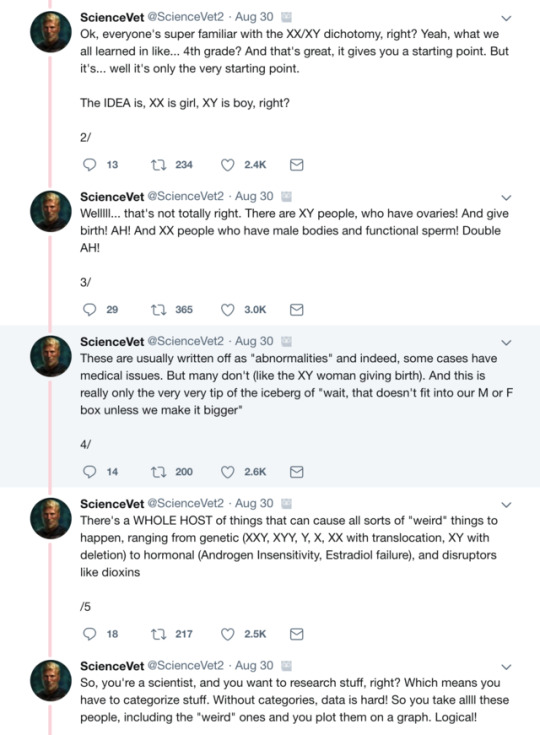





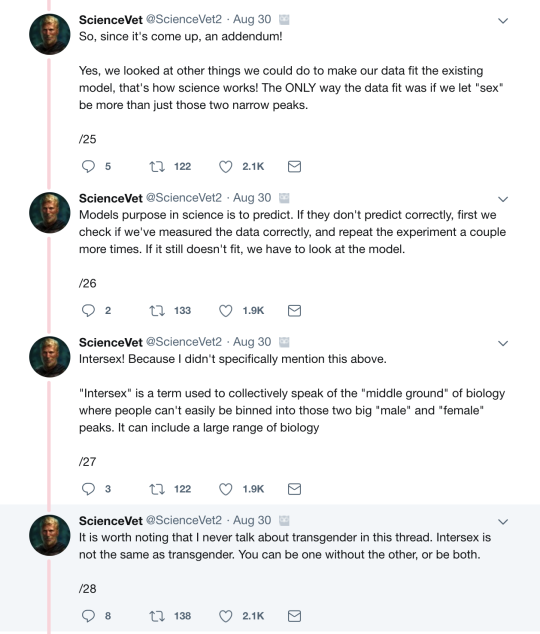
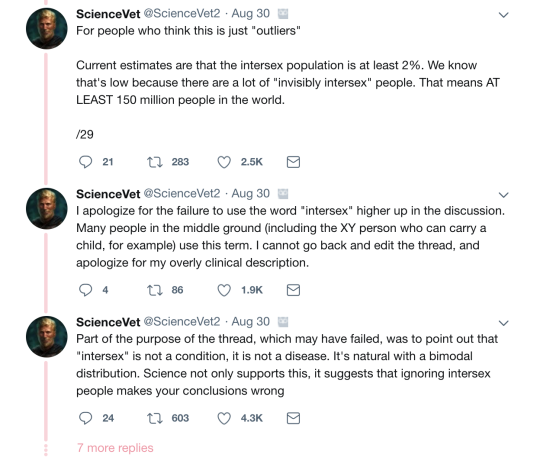
@ScienceVet2 explains intersex variations on twitter.
ScienceVet is a Ph.D in Biochemistry and has published in the fields of endocrinology and sexual differentiation. His Ph.D. is in Biomedical Sciences - Biochemistry and Molecular Pharmocology.
39K notes
·
View notes
Photo









@ScienceVet2 explains intersex variations on twitter.
ScienceVet is a Ph.D in Biochemistry and has published in the fields of endocrinology and sexual differentiation. His Ph.D. is in Biomedical Sciences - Biochemistry and Molecular Pharmocology.
39K notes
·
View notes
